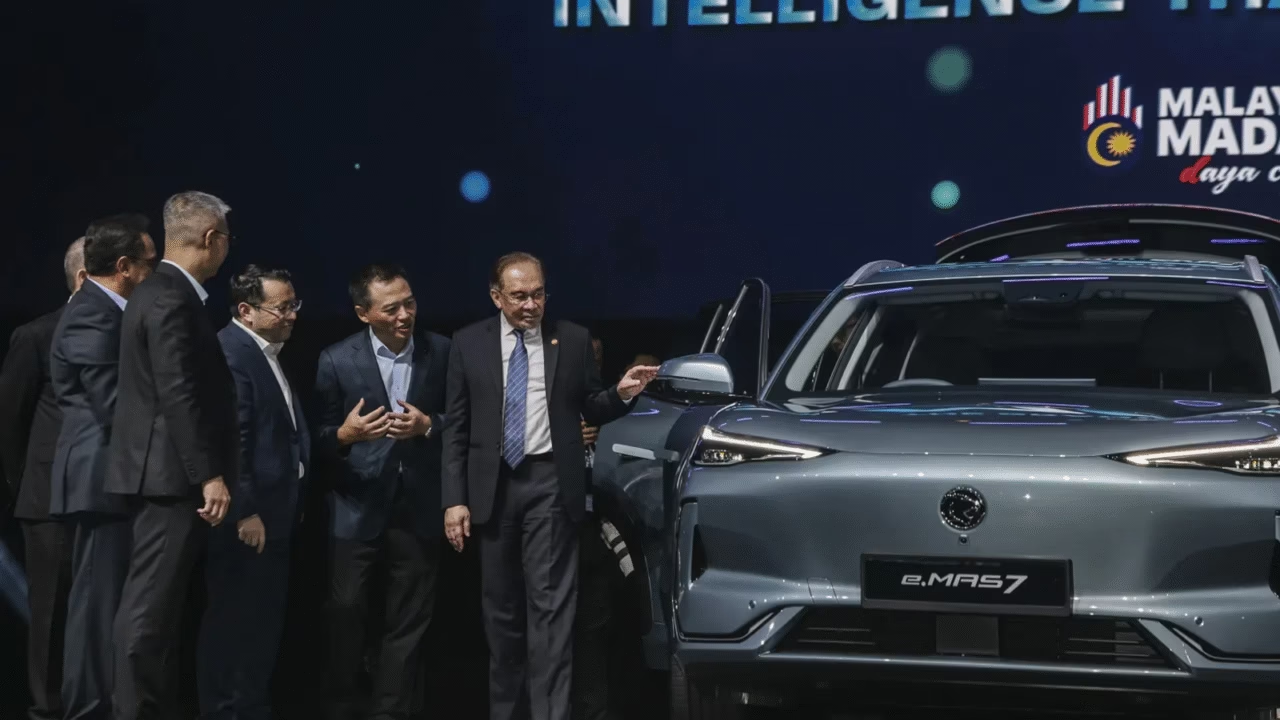Proton, the national automaker of Malaysia, is once again gaining international attention. After experiencing years of inconsistent performance, the company is currently enjoying a surge of optimism due to its impressive results in Egypt. Prime Minister Datuk Seri Anwar Ibrahim has praised this accomplishment as evidence of Proton’s global potential and has encouraged the brand to broaden its reach into additional international markets. For an automaker that was once primarily viewed as domestic, this marks a significant turning point in its revival narrative.
Egypt: A Strategic Win
Proton’s achievements in Egypt are not coincidental. The partnership with Ezz Elarab Group, one of Egypt’s foremost automotive distributors, has played a crucial role. By assembling vehicles locally using the CKD (completely knocked down) model, Proton has successfully lowered costs while establishing a brand presence that is relevant to the local market.
The Proton Saga, an economical sedan, has struck a chord with Egyptian consumers seeking affordable yet reliable vehicles. Reports indicate that demand has surpassed initial expectations, with over 12,000 units anticipated to be produced by the end of 2026. This performance highlights Proton’s capability to tailor its products to meet the diverse needs of various markets and consumers.
Anwar’s Call for Global Expansion
During the unveiling of Proton’s latest electric vehicle initiative, Prime Minister Anwar Ibrahim emphasized Egypt’s success as proof that Proton can compete outside of Malaysia. His message was unequivocal: “Expand to more countries.”
This appeal comes at a moment when the global automotive industry is undergoing significant transformations. Southeast Asian automakers, often eclipsed by their Japanese and Chinese counterparts, are starting to establish their own niches. Proton’s ability to combine affordability with dependability could position it favorably in emerging markets throughout Africa, the Middle East, and even South Asia.
Why Proton’s Model is Effective Internationally
Several elements contribute to Proton’s strong position in global markets:
Cost-Effective Pricing – In regions where consumer purchasing power is constrained, Proton provides vehicles that effectively balance affordability with performance.
Local Assembly Benefits – CKD (Completely Knocked Down) operations help minimize import tariffs, enhancing the price competitiveness of their vehicles.
Geely Collaboration – Proton’s partnership with the Chinese automotive powerhouse Geely grants it access to cutting-edge technology, design skills, and extensive global supply chains.
Electric Vehicle Preparedness – As electric mobility continues to gain traction, Proton’s gradual transition into electric vehicles could create opportunities in markets looking for budget-friendly alternatives to Tesla or BYD.
Prospects and Obstacles Ahead
The achievements in Egypt offer Proton a model to replicate. Markets in North Africa, ASEAN, and certain areas of Eastern Europe present opportunities where the demand for affordable vehicles is increasing. By establishing itself as a dependable, cost-effective option, Proton could significantly enhance its export capabilities.
Nonetheless, challenges persist. Competition from established international brands, currency fluctuations, and trade restrictions may challenge Proton’s durability. Additionally, rapid expansion without ensuring adequate after-sales support and brand reliability could undermine consumer trust.
From Cairo to the global stage, Proton’s progress is gaining traction. The success in Egypt is not merely a commercial achievement but a testament to the potential of Malaysia’s national car manufacturer to succeed internationally with the appropriate strategy. Supported by government initiatives, strategic partnerships, and a heightened emphasis on affordability, Proton has the opportunity to redefine itself as a formidable player in the global market.
As Anwar Ibrahim aptly noted, this is the time for Proton to expand its horizons. If the company can successfully apply the Egyptian model in other markets, it will not only be a source of pride for Malaysia but could also emerge as a serious competitor in the global automotive industry.

